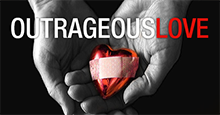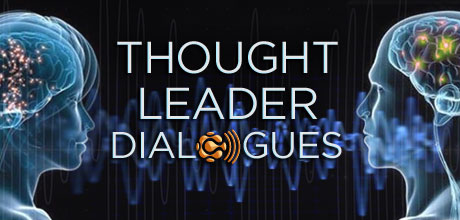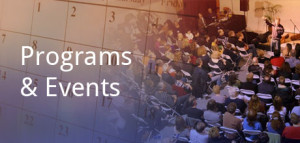More About Soul Prints PBS Special
What makes us get up in the morning? Big question! As long as we’re going for big questions, what’s the meaning of life? Let’s re-frame it because you’ve got to always work on the question before you get to the answer. Where is the meaning in my life? Where do I feel alive? Where do I feel like it’s all worth it? Where do I feel like this is why I am here? Let me re-frame the question, again. And in my mystical tradition, first we try to get the question straight and then we try to sort of blow open and understand the depth of the answer.
Let me tell you a story. It’s a story about Van Cortland Park, Riverdale, New York, a part of the Bronx. A little kid who had gotten a little bigger just had his confirmation. He got a lot of presents, none of them particularly exciting. With a little money left over, he goes to the neighborhood store and buys himself that big red kite behind the storekeeper. A little miracle: some money left over, so he buys some string. Ties the string to the kite. And the happiest kid in the world, Sunday morning–after church, I assume–begins to fly his kite. He lets out some string, and more string and more string and more string until, if you’re looking from the outside, all you see is a young man flying a kite and the kite is so far away you can’t see it. A gentleman, apparently representing the establishment, stops this young man and he says, “What are you doing?”
“What do you mean what am I doing? I’m flying a kite!”
“What do you mean you’re flying a kite? Where’s the kite? You can’t see it! How do you know there’s a kite?”
And the young man says, “I know there’s a kite because I can feel the tug! I can feel the tug.”
What are the moments in which we feel the tug? Something higher. We feel that this is it. This is why I’m here. And my last re-framing of the question: What is the primal drive that moves us forward in the world and makes us want to get up in the morning?
My grandfather, whom I loved very much, used to love to tell this old story about Bernie. It’s a Lower Eastside story. Bernie doesn’t like to go to school. His mother comes in and says, “Bernie, you’ve got to get up and go to school!”
And Bernie says, “I don’t want to go to school! The teachers don’t like me, the kids don’t like me!”
And mom says, “Bernie, you must get up and go to school.”
And Bernie says, “Give me one good reason!”
“Well, you’re fifty-two years old and the principal!”
Why do we get up? It doesn’t change as we get older. I can be 57 and have the same questions. Getting older by itself doesn’t guarantee the answer, it just becomes more inappropriate to pretend like we have the questions. But we do! They’re the same throbbing questions that we had when we were 14 or 15. And the question is: when do I begin to feel that tug and know this is what it’s about?
I want to share with you a little of what I think is the core, the essence, of the mystical Biblical answer to the question. What is the unique Biblical understanding of what drives me forward in the world? Freud said it was libidinal energy, sexual drive. Important, but insufficient. Nietzsche, in some form, talks about the drive for power. But power doesn’t bring us happiness. Just read the autobiographies of the rich and famous and see if you find one that’s happy. What is the Biblical response? Not Freud, not Nietzsche, whom we love dearly, but what’s the unique Biblical understanding of what drives me forward in the world?
Let me tell you a brief story. I was in Denver, Colorado, not so long ago after a lecture. After a lecture, I lost my bags where I had my books to study. No one to call. And so what did I do? We know in every hotel room in the United States of America–Pledge of Allegiance to the Flag, Born in the USA–what is there? A Bible. So I open the Bible–and check this next time you’re in a hotel room–there’s an index in the beginning of every Bible. If you’re drunk, read Psalm 139. If you’re having problems with this, read 38. It said, if you’re lonely, read Psalm 23. So I began to read. “The Lord is my shepherd, I shall not want…yea, though I walk in the shadow of the valley of death, I fear no evil.” And I read it slowly and carefully, and with great concentration. I have to tell you that I still felt lonely when I finished. But someone had written a little note there, “If you’re still lonely, call Lola–telephone number…” Ok. What is that about? If you’re still lonely, call Lola! Loneliness. Loneliness suggests the Biblical tradition. It’s that experience that we never admit, but all feel. I can be married for 35 years and still feel lonely. It’s not about outside situations, it’s about this in-depth experience: I’m lonely. Somehow I need to move from loneliness to loving. From loneliness to connection. That desire, that drive, that need to move from loneliness to connection is the primal human drive in the Biblical tradition.
Let’s look at the text for a second. Chapter 1, Genesis. Every stage of the Creation in this literary Biblical text: “and God saw that it was good.” That “it was good” and that “it was good” and that “it was good,” all through Chapter 1. And then we climax in the stunning crescendo in Chapter 2, in the only place the Bible deems something not good. What’s the “not good?” After all the “it was good”–you’ve got the whole world–it’s not good for the human being to be lonely. And isn’t that true? I can have all the good in the world, but if I am lonely, in one sleight of hand, in one sleight of soul, all of the “it was good” of Chapter 1 becomes “it was not good.”
Remember that medieval adage by Duns Scotus? Remember, if a tree falls in a forest and there was no one there to hear it, does it make a sound? Let me re-frame it for you. If something happens to you and there’s no one there to share it with, did it happen? You’ve won the lottery. What’s the first thing you do when you’ve won the lottery. You go and pick up the phone to tell someone. Picture the pathos: I want to tell someone, but there’s no one to tell. That’s what it’s about. It’s about moving from the loneliness to loving. It’s about trying to establish the connection that I need to share my life with someone else, to make my life meaningful.
Now, what we need to do in order to make this real and make this alive and make this something I can use in my life, we need a definition. Descriptions of loneliness are insufficient. We need together to define what is loneliness. If I can’t define it, if I don’t know what it is, I can’t move beyond it into loving. So let me try and give you a definition, and definitions aren’t about jargon, they’re not about footnotes, and they’re not about the Academy, although I love and live in the Academy. It’s about life. And life is about stories because God loves stories. So let me tell you a story about my son.
My son Eitan, a great philosopher–he’s actually 13 years old–stops me at the door as I’m running out to a tour in the States. At the door of my house in Israel, he says, “Dad, Abba, dad, take this with you.” So I very quickly grab it, give him a kiss, put it in my stuff.
I get back three weeks later. And Eitan had told me to look at what he gave me. And I have to tell you that I just forgot about it. So I walk into my house 11:00–midnight–and Eitan is sitting there, looking very serious, looking at me. He looks at me, I look at him. I don’t even have time to lie. He realized that I had forgotten to look at what he gave me. And a tear rolls down his cheek and I felt like it just wasn’t worth being born at all. And I said, “Eitan, please, give me another chance.” And I ran to the car. And I looked at the bottom of my luggage and I got what he had given me which was a sort of shoe box. And I said, “Eitan, what is this?”
He said, “Abba, open it. Dad, open it!” So we open it and in it there’s an old faded picture of me, something of his mom’s, a rock, a seashell, something from our first home.
I said, “Eitan, Eitan, what is this?” And I shiver as I remember what Eitan said to me.
He said, “Dad, these are my things. I gave them to you and you didn’t receive them!”
Don’t we all have a box? And in that box is our “stuff.” It’s our things. It’s not our job, and it’s not our status, and it’s not our bank account, it’s not how we look, and it’s not the particular functioning or health of our bodies, it’s who we are. It’s our fears, it’s our memories, it’s our hopes, it’s our pathologies, it’s our silliness but our unique silliness, it’s our craziness but our unique craziness, it’s the depth of who we are. It’s our soul print. Just like every human being has a finger print which defines their physical essence, every human being has a soul print. And a soul print is my individuated unique essence. It’s my infinite specialness. It’s that which is me which no one else in the world has other than me. You know, there’s a poem that only you can write. There’s a song only you can sing. It’s not about public. Academy Awards, Oscars are for the poor and anonymous. And aren’t we all poor and anonymous? It’s about the way of being in the world. It may be, if I’m a grandfather or a grandmother, it may be something special at this moment in life that I can share with my grandchild.
You know what the mystics say? That what makes the human being created in the image of God is that the human being in the only creature on Earth who has grandchildren! What a stunning idea. The human being is able to pass something down for two generations. So, for example, if I’m a grandparent, I may well have something unique; an interaction that I can have with my child or grandchild that I was never able to have until this point in life. And that interaction is a soul print moment. That’s what life is about. Life is about being and living my story. If there is a
song, if there’s a mantra, if there’s a phrase that captures soul prints, it is “live your story.” And it doesn’t matter how old you are or how young you are. It doesn’t matter what resources you have available. There’s a story that’s your story and no one else’s story in the entire universe.
You know what depression is? Depression is when I get up in the morning and say, “I am fully replaceable.” You throw a rock into a pond and it ripples and disappears. Joy, happiness is knowing there’s something in exchange: a caress, a hug, or a whisper that I and only I can do. Loneliness is the inability to share my soul print with someone else. Redemption is that moment of soul print sharing. So I invite you and you invite me and we invite each other today, tonight, now. Make a phone call. Take out your soul print box and begin to share, and begin the act of joyful redemption. Thank you.














